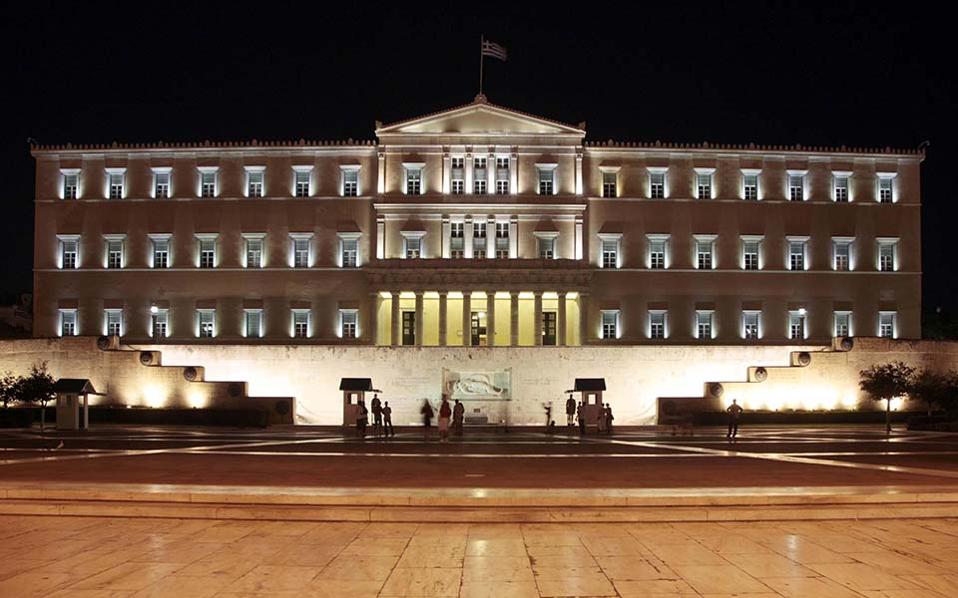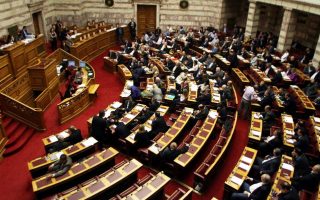Bill for third bailout submitted to Parliament, vote likely early Friday

The government submitted to Parliament on Wednesday morning the draft bill containing its agreement with lenders for the third bailout, as well as the prior actions Greece will have to adopt in the weeks ahead.
However, the government’s plans for the bill to be assessed at committee level on Wednesday, before a vote in the plenary on Thursday are unlikely to materialize.
Parliamentary speaker Zoe Constantopoulou appears to be delaying the procedure by calling a meeting with deputy speakers to decide the schedule for the plenary. She called the meeting for 9.30 p.m. on Wednesday, thereby preventing the committees from meeting earlier.
This means that the committees are likely to convene on Thursday morning, with the plenary gathering later for the debate and vote. MPs are likely to vote in the early hours of Friday morning, shortly before eurozone finance ministers are expected to meet to discuss the details of the agreement.
This would pave the way for a disbursement of up to 25 billion euros by August 20, when a 3.2 billion euro debt payment is due to the European Central Bank.
Under the terms pf the agreement, Greece will have to produce a orimary budget deficit of 0.25 percent of GDP in 2015, followed by surpluses of 0.5 percent in 2016, 1.75 percent in 2017, and 3.5 percent in 2018.
The Greek economy is expected to shrink between 2.1 and 2.3 pct in 2015, contract by 0.5 percent in 2016, and return to 2.3 percent growth in 2017.
The government will be expected to pass 35 “prior actions” as part of the agreement. These include.
– New laws on non-performing loans held by banks.
– Deregulation of the natural gas market.
– Setting up an independent sovereign wealth fund in Greece intended to raise 50 billion euros, three-quarters of which would be used to recapitalize banks and decrease debt.
– Scrapping tax breaks for farmers who now receive subsidized fuel.
– Tighter regulation of a repayment system for individuals owing back taxes to the state.
– A gradual increase in a system under which taxpayers ranging from the self-employed to small businesses pay tax in advance on their forecast income.
– Increase to 6 percent from 4 percent of a "solidarity tax" paid by those earning 50,000-100,000 euros a year.





